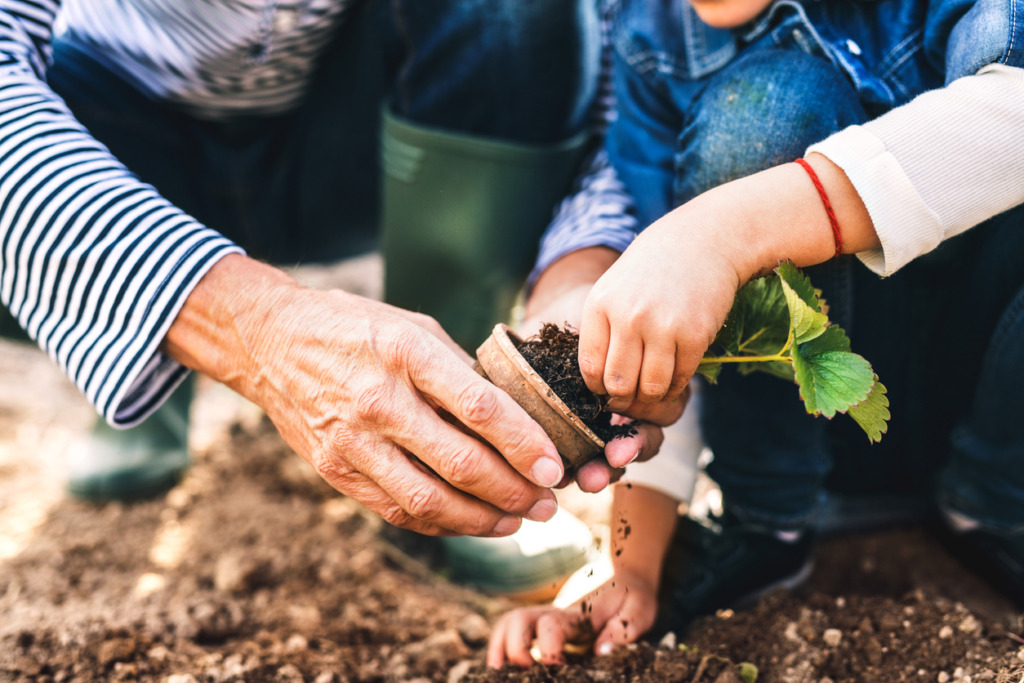Can you imagine what it must have been like to give birth to and parent the child who was chosen to be the mother of God and then realize their grandson would be God himself?
That was the gift that was bestowed upon the most venerated grandparents in all of creation. Little is known about the lives of Sts. Anne and Joachim, but legends surrounding this holy couple can be found among the early Christian apocryphal writings. According to early Christian tradition, Anne was childless for much of the couple’s married life. As devout Jews, this would have been more than a source of disappointment; it would be looked upon as a sign of God’s disfavor, but that’s not how the story ended.
Like with Sarah and Hannah in the Old Testament, and later Elizabeth, God intervened. In each case, the child was born from the natural order through sexual relations, which was also true when Anne and Joachim were blessed with a child.
According to the Protoevangelicum of James, which dates to the third century, the anguish of being childless led Joachim to retreat to the desert while Anne stayed home, praying that God would grant them a child. During this period, each received a visit from an angel who told them that they were to have a child who would be favored by God.
With this assurance, the couple reunited, had sexual relations, and their prayers were answered. In remaining faithful to a promise that Anne made while she was pregnant, Mary was taken to the temple in Jerusalem at the age of three where she was dedicated to God and remained until the 12th year of her life.
As early as the fourth century, Anne was esteemed by the Eastern Church, but it was not until the sixth century that she was introduced to the West. By the 15th century, devotion to Joachim became popular, though each saint was memorialized individually. However, in keeping with the esteem the Church holds regarding marriage, the feast of Anne and Joachim is celebrated on July 26.
This year marks the second anniversary of what Pope Francis designated as a time to honor not only grandparents, but all the elderly. The Holy Father reminded us of their ongoing vocation, which is to help form younger generations. In a homily marking the occasion, Pope Francis said:
“Old age is no time to give up and lower the sails, but a season of enduring fruitfulness: a new mission awaits us and bids us look to the future. The special sensibility that those of us who are elderly have for the concerns, thoughts and the affections that make us human should once again become the vocation of many.
“It would be a sign of our love for the younger generations. This would be our own contribution to the revolution of tenderness, a spiritual and non-violent revolution in which I encourage you, dear grandparents and elderly persons, to take an active role” (Message of his holiness Pope Francis for the second World Day for Grandparents and the Elderly).
In our culture, there are elderly people who are neglected and who feel estranged or useless. So it is with renewed appreciation for the aged that Pope Francis calls us to revere the elderly, whether we are related to them or not. With his own health declining, the words of the Holy Father are borne from personal experience. Like St. John Paul II, Pope Francis reminds us that the aging process is part of the human condition and failing physical health need not be a deterrent to the spiritual health of the Body of Christ.
I recall my second grade teacher, Sister Mary Annunciata, telling us that the soul of a young person is like a small wayside chapel, but the souls of the elderly who have prayed throughout their lives are like beautiful cathedrals. It’s a lovely analogy, one that has remained with me over the years.
Today, with so much emphasis on looking youthful, it’s easy to lose sight of what’s really important. At the end of our life, it won’t matter what we look like, what we’ve achieved or how much wealth we’ve accumulated. The only thing that will matter is whether or not we’ve become the person that God has created us to be, which will be evident by the beauty of our soul.
May we all grow into beautiful cathedrals that will be a source of edification to a Church that is in need of young people to fill the pews being left vacant by an aging generation.

